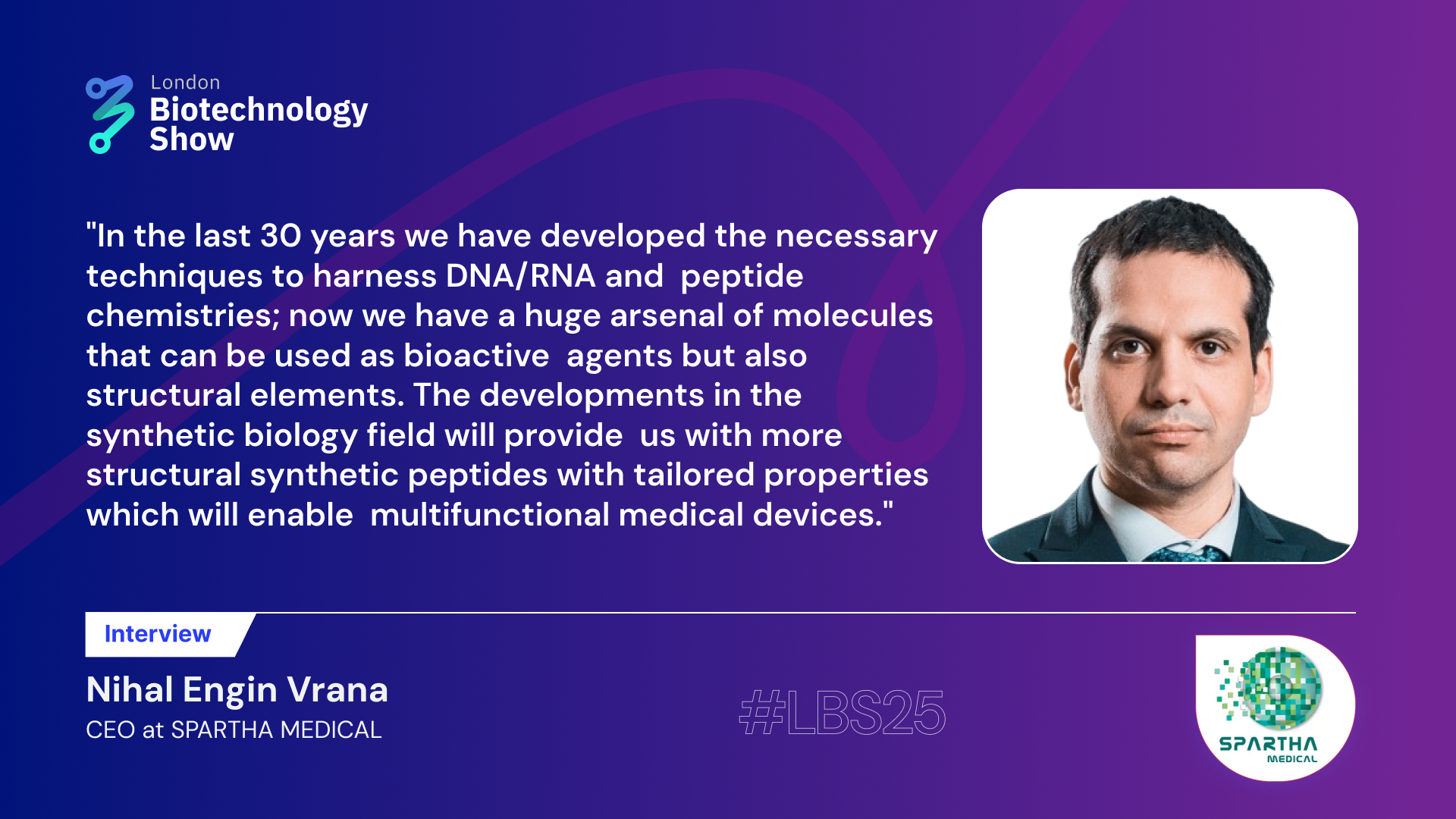The intersection of biomaterials and personalised medicine is redefining the future of healthcare, unlocking new possibilities for treatment and recovery. From life-changing implantable devices to cutting-edge regenerative therapies, innovation in this field is rapidly transforming patient care. In a recent interview, Nihal Engin Vrana, CEO at SPARTHA MEDICAL, talked with Muhammad Younis about the groundbreaking advancements in the field, emerging innovations, and the industry's future—particularly in implantable devices and regenerative medicine. Nihal shared valuable insights into how Spartha Medical is pushing the boundaries of biomedical technology, enhancing both the performance and longevity of medical devices.
#LBS: How do you think the role of biomaterials will evolve in personalised medicine, and what are the main challenges for the biomaterial and coating industries in supporting this shift?
Nihal Engin Vrana: After the personalisation of the medicine, the next step is the personalisation of the medical devices. The most advanced one of personalisation processes, 3D printing of personalised implants from medical images has already been underway with significant benefits to the patients. But the personalisation of the medical devices has another level that has not been fully attained yet; the personalisation of the devices with respect to the immunoprofile of the patients to ensure minimal adverse reactions and better integration. Advanced coatings can enable such patient specific modifications.
#LBS: What are the most exciting recent breakthroughs in biomaterials and coatings for medical devices, and how do they enhance device performance and durability?
Nihal Engin Vrana: Use of biomaterials for bioelectronics and biorobotics applications has brought in new venues for designing and developing medical devices, particularly in microscale with a significantly improved capacity to control the activity after implantation and also controlled degradation. New classes of materials continuously find their way into medical device applications such as metal-organic framework, molecularly imprinted polymers and hybrid materials. As an off-shoot of the 3D printing industry, bioprinting has matured and expanded significantly; improving our capacities in regenerative medicine and also in disease modelling. Finally, machine learning methodologies that have been in use in other parts of the material science started to find their applications in biomaterials, significantly accelerating the design processes.
#LBS: What biomaterial innovations do you foresee shaping healthcare, particularly in implantable devices and regenerative medicine? How might these developments overcome existing treatment challenges?
Nihal Engin Vrana: In the last 30 years we have developed the necessary techniques to harness DNA/RNA and peptide chemistries; now we have a huge arsenal of molecules that can be used as bioactive agents but also structural elements. The developments in the synthetic biology field will provide us with more structural synthetic peptides with tailored properties which will enable multifunctional medical devices. The next frontier is polysaccharide chemistry and fully harnessing the capabilities inherent in natural polysaccharides.
#LBS: How do Spartha Medical’s coatings contribute to medical device performance and lifespan? Could you describe the testing procedures that ensure their safety and effectiveness?
Nihal Engin Vrana: Our coatings are based on harnessing the biointelligence; using the natural affinities between biopolymers to create complex supramolecular structures which are fully biocompatible and biodegradable. As these structures form coatings via supramolecular interactions, they can be applied to any kind of geometry and chemiçstry giving us a big toolbox to modify medical devices designated for different organs and made of different materials. Our coatings can render the surfaces anti-microbial, antiviral, anti-inflammatory according to the device needs and we can incorporate other properties, anti-biofouling, pro-regenerative, immunomodulatory etc. according to the specifications of our clients. In fact, our service offer spartha|SHIELD (www.sparthashield.com) is based on development of customised coatings with respect to client needs. We develop the coatings using our internal machine learning models, develop specific tests with respect to the final application, carry out microbiology risk assessment for new products and full-scale coating characterisation and validation, with technology transfer.
#LBS: What is your take on events like the London Biotechnology Show in advancing the medical device sector, fostering innovation, and creating opportunities for growth and collaboration?
Nihal Engin Vrana: Such events are the best venues to discuss with different actors in the field, better understand the current needs and showcasing the technologies. The technological advances are only possible via integration of different new developments and such biotechnology shows enable companies like us to demonstrate our capabilities, obtain feedback from our end users and also discuss with our potential clients.

